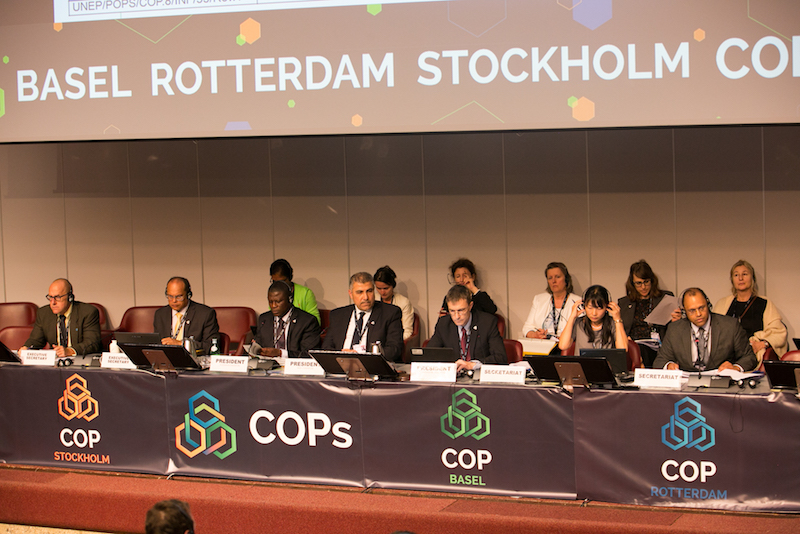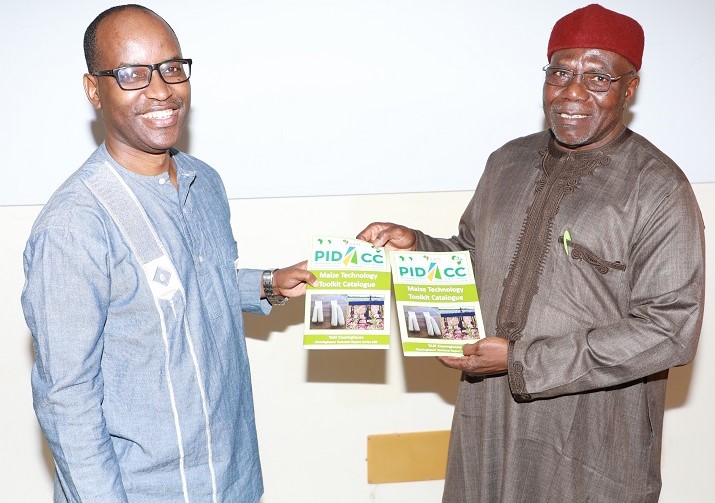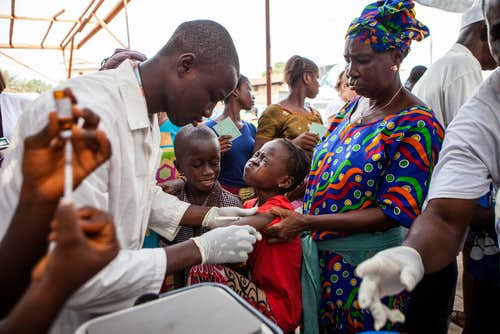
By Greg Odogwu
What better way to depict the depth the world has sunk in environmental pollution than handing everyone on Earth his/her own share of the toxics?
And for toxic ash, annually each one of us is entitled to a small sack of 350gramms of that poisonous dust from waste incinerators scattered around the world in their hundreds – oozing disease and death!
This was exactly what an NGO, International POPs Elimination Network, did during its side event at the ongoing Conference of Parties to the Basel, Rotterdam and Stockholm Conventions at Geneva, Switzerland.
As you entered the hall, you are handed your own share of “ash”. Although the true content of the sack was sugar, everybody got the message.
The thirteenth meeting of the Conference of the Parties to the Basel Convention, the eight meeting of the Conference of the Parties to the Rotterdam Convention and the eight meeting of the Conference of the Parties to the Stockholm Convention holds from 24th April to 5th May 2017.
The theme for this year’s COPs is “A future detoxified: Sound management of chemicals and waste.”
The three conventions are lumped together because they address connected issues relating to environmental pollution and chemical waste management and administration.
The Basel Convention is an international treaty that was designed to reduce the movements of hazardous waste between nations, and specifically to prevent transfer of hazardous waste from developed to less developed countries;
The Rotterdam Convention is a multilateral treaty to promote shared responsibilities in relation to importation of hazardous chemicals; while The Stockholm Convention on Persistent Organic Pollutants aims to eliminate or restrict the production and use of persistent organic pollutants.
POPs are organic compounds that are resistant to environmental degradation through chemical, biological and photolytic processes (example, some pesticides, industrial chemicals and PCBs).
POPs are behind many health and environment challenges we face, therefore sound chemical management is crucial to achieving the 2030 Sustainable Development Goals agenda.
As a matter of fact, experts, scientists and policy makers are of the consensus that chemicals and wastes are essential for the implementation of SDGs goals on poverty reduction, health, gender, water, cities, oceans, food and sustainable consumption and production.
What is on the table on this year’s BRS COPs? A lot, for sure; yet considering that the reality of environmental pollution is still dwarfed by the global recognition of global warming and climate change, BRS should look beyond its annual agenda and broaden its focus by mainstreaming even on the gains made in the years past.
For instance, Prior Informed Consent (PIC) is a crucial component because a drastic reduction in pesticide use is essential as it generates social, environmental and economic benefits, while contributing to the achievement of the SDGs.
Launched in 1989, PIC helps countries make informed decisions on the import of chemicals that have been banned or severely restricted.
Secondly, ash and other residues are major source of POPs contamination of the environment that is often overlooked, underestimated or incorrectly classified in risk assessments, exposure scenarios and regulatory controls on waste.
They contain dioxins, furans (PCDD/Fs) and a range of other highly toxic POPs at levels which are a threat to human health and the environment.
According to a special report released by IPEN at the BRS COPs, current management practices and regulatory threshold levels for POPs that contaminate incinerator residues are not preventing releases of POPs into agricultural settings, the food chain and the broader environment.
Ironically, waste incineration is often proposed by industries as a “solution” to waste management problems and a superior alternative to landfill.
IPEN maintains that burning waste creates large amounts of toxic ash and other residues (approximately 30% by weight of the original waste volume) which are either dumped in landfill, on open ground and in some countries deep in underground voids.
“In some jurisdictions ash is incorrectly thought to be benign resulting in its use in agricultural settings and construction leading to significant POPs exposure potential.
“Municipal waste incineration destroys valuable resources and converts non-toxic material into toxic ash. Hazardous and medical waste incineration generates significant quantities of toxic ash when there are a range of non-incineration alternatives available to treat these wastes without creating POPs contaminated residues,” the IPEN report entitled ‘Toxic Ash Poisons Our Food Chain’, says.
Thirdly, as the African Group had pointed out at its opening statement at the BRS COPs, there is need for an agreed definition for SCCPs. Short Chain Chlorinated Paraffins are industrial chemicals primarily used in metalworking but also as flame retardants and softeners in plastics.
Their harmful properties have attracted global concern and a Stockholm Convention expert committee has recommended world-wide elimination of SCCPs at the 8th Conference of Parties in April/May 2017.
Regions and parties need to make informed decisions regarding the issue. An IPEN study which examined consumer products from 10 countries, found SCCPs to be widely present in baby-related products and products favoured by children including Mickey Mouse slippers, jump ropes, balls, plastic ducks and baby bibs.
The study also found a hand blender commonly used to prepare baby food which leaked SCCPs. SCCPs adversely affect the kidney, liver, and thyroid; disrupt endocrine function; and are anticipated to be human carcinogens.
Fourthly, another major issue before the COPs is the decision to list decabromodiphenyl ether (DecaBDE) for elimination. Similarly, it is also to decide whether to continue octabromodiphenyl ether (OctaBDE), as the chemical is subject to an exemption that permits recycling of materials containing the substance. (The Stockholm Convention expert committee has already warned against this practice.)
The fact is that recycling materials that contain persistent organic pollutants and other toxic substances contaminates new products, continues human and environmental exposure, and undermines the credibility of recycling.
What is more, due to the absence of a robust green economy, developing countries are at a higher risk. What is to be done? I am of the view that it is high time BRS system incorporates intensive and extensive science in its activities as a matter of policy and procedure.
According to a presentation made by Professor Babajide Alo (Director, Centre for Environmental Human Resources Development, University of Lagos), at the side event organized by Nigeria and the BRS COPs Secretariat, there is “need for proposed actions for strengthening the Science-Policy Interface in the BRS Conventions”.
This will effectively strengthen partnerships between the science community and the BRS Conventions; and also policy makers at governmental levels, the civil society, the media and the general public, who at the end of the day feel the direct impacts of environmental pollution and degradation.
Professor Alo’s professional affirmation reflects my private thoughts. I am confident that if science is mainstreamed, funded and supported just as it is practiced in the United Nations Framework Convention on Climate Change system, BRS shall experience a quantum leap not only in its inherent credibility, but in finding the right and accepted channel to solve some lingering implementation issues it is faced with today, like in the Chrysotile-Asbestos debate.










